26 October 1947, "J&K Accession Day": When Jammu and Kashmir acceded to India
Total Views |
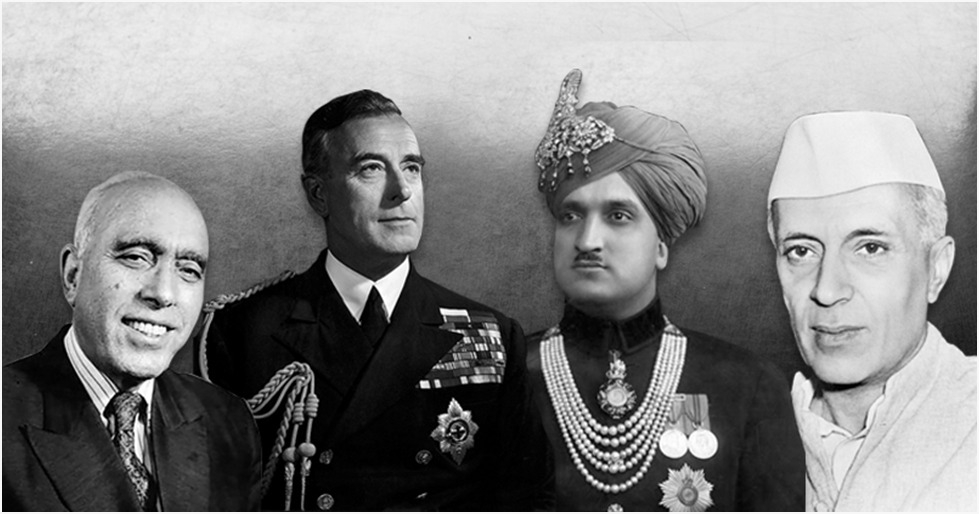
''Jammu and Kashmir Accession Day" is observed on October 26th each year in India. It commemorates the signing of the Instrument of Accession by the then- Maharaja Hari Singh of Jammu and Kashmir, which allowed the state to accede to India in 1947.
This was facilitated by negotiations with the Indian government and the assistance of Sardar Vallabhbhai Patel, the first Deputy Prime Minister and Minister of Home Affairs of India, who played a significant role in integrating princely states into the newly independent India.This event marked the beginning of the integration of Jammu and Kashmir into the Indian Union.
Brief History of J&K:
The region of Jammu and Kashmir has a long history, with influences from various empires and dynasties, including the Mauryan, Kushan, Gupta, and Mughal empires. The spread of Buddhism in the region also left a significant cultural impact.
In the early 19th century, the region was ruled by the Sikh Empire of Maharaja Ranjit Singh. However, after his death, the region witnessed political turmoil.
In the mid-19th century, Maharaja Gulab Singh, a Dogra chieftain, secured control over Jammu and Kashmir through the 'Treaty of Amritsar’ with the British. His descendants, the Dogra rulers, continued to rule the region until the partition of India in 1947.
During the partition of India, Maharaja Hari Singh, the ruler of Jammu and Kashmir, had to make a choice between joining India or Pakistan.
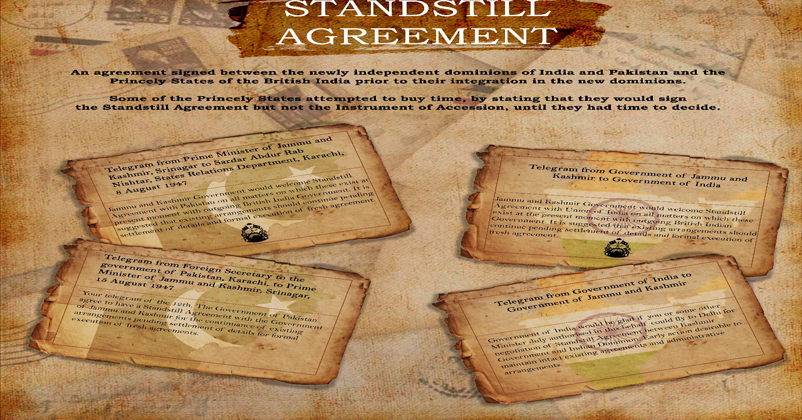
Maharaja Hari Singh, the Hindu Dogra ruler of Muslim-majority J&K at the time of India’s independence, seemed inclined towards independence and did not initially appear to be keen to join either dominion. On 12 August 1947, he therefore sought a standstill agreement with both India and Pakistan. He communicated to both that the “Jammu and Kashmir government would welcome standstill agreement with Union of India/Pakistan on all matters on which there exists arrangements with the outgoing British India government”.
India responded by asking Maharaja Hari Singh to send his representative to Delhi for further discussions. The Indian communication said that the “Government of India would be glad if you or some other minister duly authorized in this behalf could fly to Delhi for negotiating Standstill Agreement between Kashmir Government and India dominion. Early action desirable to maintain intact existing agreements and administrative arrangements”.
J&K did not send a representative to Delhi, and no negotiations were consequently held. Pakistan, on the other hand, accepted the J&K offer of a standstill agreement and on 15 August 1947 sent a communication to Janak Singh, the then Prime Minister of J&K, confirming the same.
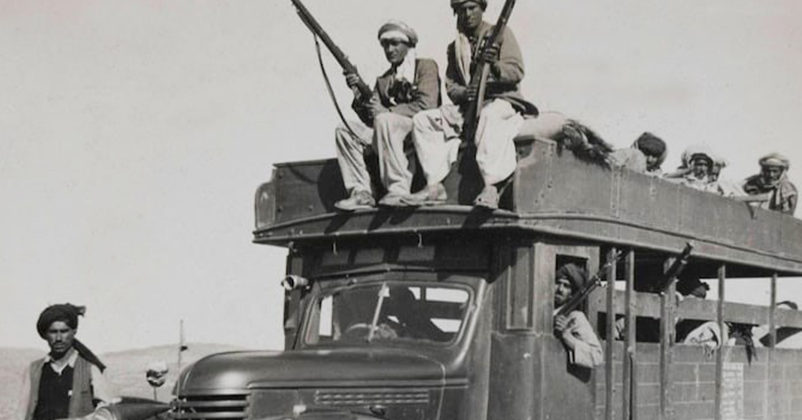
tribal militias backed by Pakistani military attacked J&K.
As per the EFSAS Commentary, Pakistan, however, made its nefarious designs on J&K clear when within 12 days of agreeing to the standstill agreement, on 24 August 1947 it threatened Maharaja Hari Singh by writing to him that “The time has come for Maharaja of Kashmir that he must take his choice and choose Pakistan. Should Kashmir fail to join Pakistan, the gravest possible trouble will inevitably ensue”. By end-August 1947, suspecting that Maharaja Hari Singh may accede to India, Pakistan had already decided to seize J&K by force.
On 4 September 1947, General Henry Lawrence Scott, commander of the Jammu and Kashmir State forces, complained about multiple covert incursions from Pakistan and asked the Maharaja’s government to raise this issue with Pakistan. The same day, the J&K PM Janak Singh officially complained to Pakistan and asked for “prompt actions”. But Pakistan had already made up his mind to invade J&K. On 22 October 1947, Pakistan launched `Operation Gulmarg’ and tribal militias backed by Pakistani military attacked J&K.
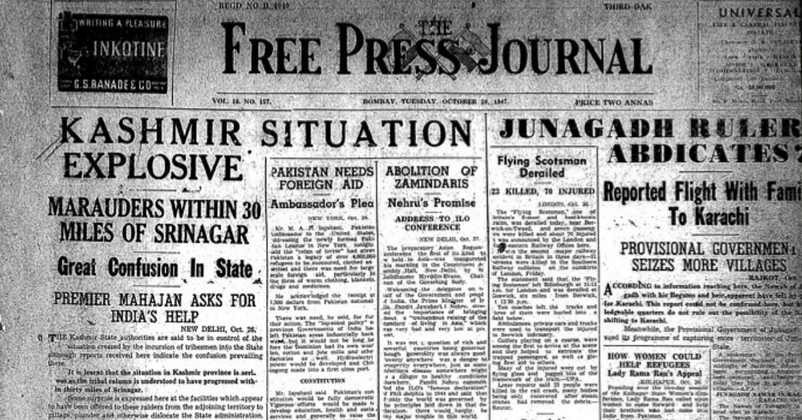
Accession
The accession of Jammu and Kashmir into India was a significant historical event with complex factors and circumstances. Several key factors led to this accession:
1. Pakistani Invasion: In October 1947, tribal militias from Pakistan invaded the princely state of Jammu and Kashmir. This invasion from Pakistan, posed a serious threat to the state's sovereignty.
2. Maharaja Hari Singh's Request: Maharaja Hari Singh, the ruler of Jammu and Kashmir, faced a dire situation and sought assistance from the Indian government to repel the invasion. He appealed India to come to his rescue.
He wrote in a letter dated 26 October 1947, “With the conditions obtaining at present in my State and to great emergency of the situation as it exists, I have no option but to ask for help from the Indian Dominion. Naturally they cannot send the help asked for by me without my State acceding to the Domination of India. I have accordingly decided to do so and I attach the Instrument of Accession for acceptance by your Government.
The other alternative is to leave my State and my people to diabolical killers and beasts. On this basis, no civilized Government can exist or be maintained. The alternative I will never allow to happen as long as I am Ruler of the State and I have life to defend my country”. He signed the Instrument of Accession on October 26, 1947, requesting India's military help.
3. India's Acceptance: The Indian government, led by Prime Minister Jawaharlal Nehru, accepted the Instrument of Accession.
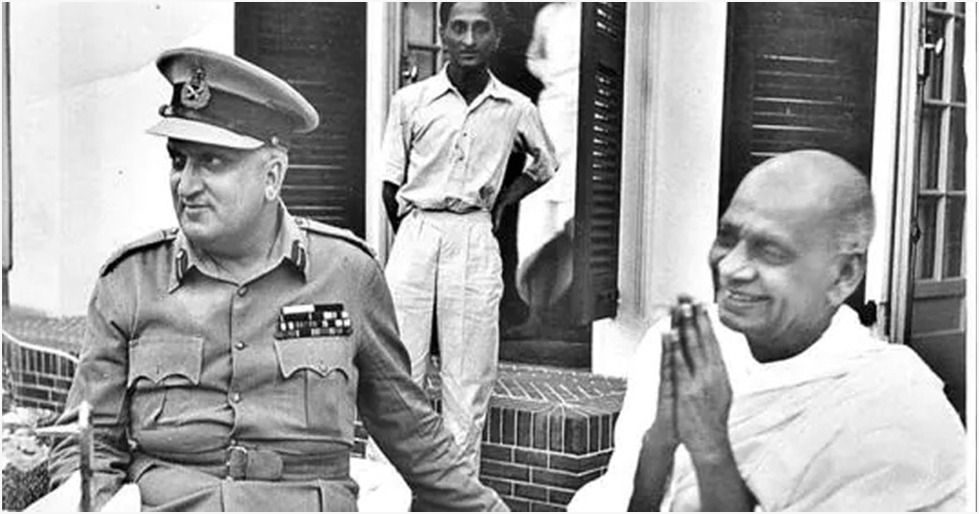
Sardar Vallabh Bhai Patel played a pivotal role
Sardar Vallabhbhai Patel played a pivotal role in the accession of Jammu and Kashmir into India. When Maharaja Hari Singh, the ruler of Jammu and Kashmir, was facing invasion by tribal forces supported by Pakistan in October 1947, he sought India's help. Sardar Patel, who was the Deputy Prime Minister and Minister of Home Affairs, played a significant role in convincing the Maharaja to accede to India.
Sardar Patel's efforts included not only diplomatic negotiations with the Maharaja but also coordinating with the Indian military to send troops to defend Jammu and Kashmir. The Maharaja eventually signed the Instrument of Accession to India on October 26, 1947, which formalized the integration of Jammu and Kashmir into the Indian Union.
Sardar Vallabhbhai Patel's leadership in this matter was instrumental in ensuring the accession of Jammu and Kashmir to India.

